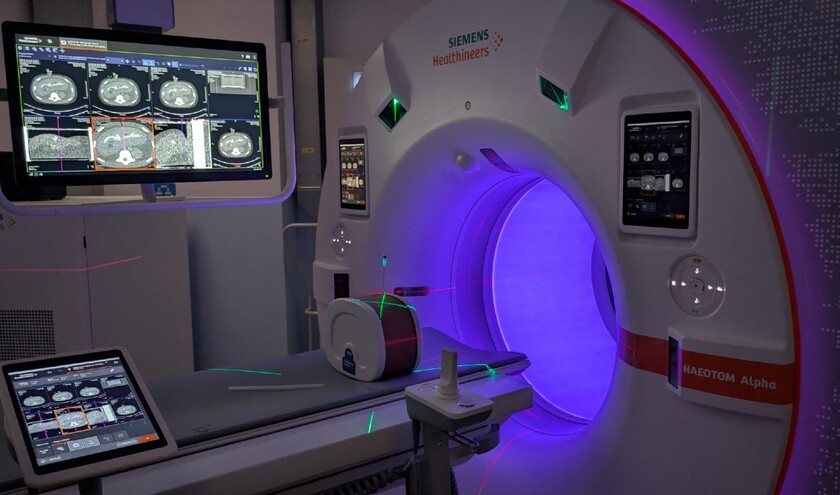Funded by the NIHR Capital Investment Funding Award and supplied by Siemens Healthineers, the technology is being primarily used to support research and also complex diagnostic and interventional imaging.
The new NAEOTOM Alpha photon-counting CT scanner utilises a new type of detector material, which directly converts X-ray photons into electric signals. This preserves more information from each scan, resulting in sharper images, improved contrast and a significantly lower radiation dose – up to 45% less.
The scanner will be initially used for complex interventional applications, such as liver and lung biopsies, where both access and image clarity are critical. The integration of the myNeedle Companion laser guidance software, permits radiologists to reach challenging lesions more precisely, reducing the need for more invasive surgical procedures.
Dr Chris Clarke, a consultant gastrointestinal & hepato-pancreato-biliary radiologist at NUH, said: ‘This technology represents a generational leap in image quality, setting a new benchmark in procedural accuracy and diagnostic confidence.
‘It supports our clinical priorities and research ambitions – and signals a shift in how advanced imaging will be delivered across the NHS. I expect systems like this will define a new standard of care in the coming years and improve patient outcomes on a national scale.'
The installation forms part of NUH's broader research strategy. Work is already underway to establish collaborations with other NHS and academic centres, with a focus on evaluating photon-counting CT across diagnostic and interventional workflows.



